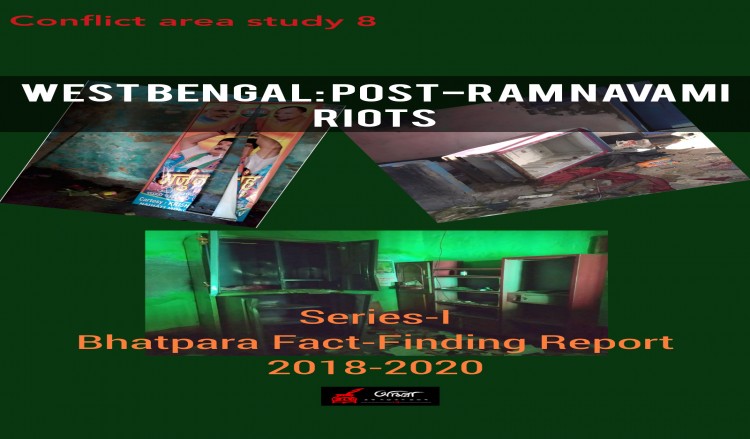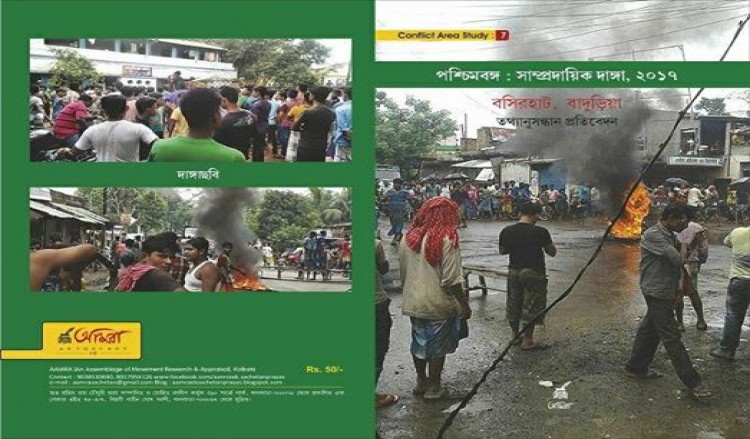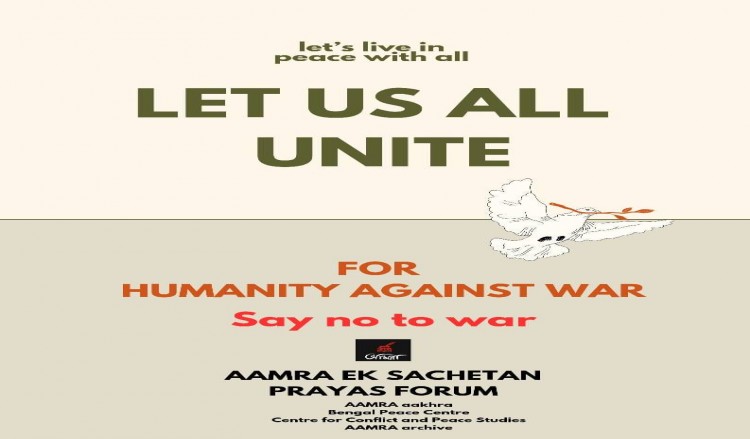
Say no to war, let peace be our only path
We strongly oppose this war. We unequivocally state that the Geneva Conventions and other international treaties and declarations must not be violated. Both countries are equipped with nuclear weapons and should act responsibly. India supported global nuclear disarmament and had submitted resolutions to the UN General Assembly advocating for a nuclear weapons convention. Pakistan had pledged no first use against non-nuclear states. Pakistan’s policy on first use against the country possessing nuclear weapons, particularly India, remains unclear. But if the war escalates, all the promises and treaties can be invalidated in a moment. We firmly demand restriction of nuclear arms. We hope that all the peace-loving common people of the both countries will stand against this war.
Say no to war, let peace be our only path
India and Pakistan are once again standing at a crucial juncture for the possibility of a war. On May 7th, India launched a missile strike at midnight on Bahawalpur in Pakistan's Punjab province and Muzaffarabad in Pakistan-occupied Kashmir. In a statement released at midnight by the Indian Ministry of Defence it is stated that air strikes targeted nine terrorist infrastructure locations in Pakistan and Pakistan-occupied Jammu and Kashmir. The ministry claimed in its statement that India struck those locations where plans were being made and instructions were being given for terrorist attacks in India. Pakistan has acknowledged the attacks and has issued threats of retaliation.
We know that since independence, India and Pakistan have been involved in multiple wars. The first war occurred immediately after independence in 1947-48, followed by wars in 1965, 1971, and 1999. Apart from these, there have been several border clashes between the two neighbours. The partition of the country in 1947, which is a result of British imperialism and subsequent communal violence, continues to leave scars on the common people of the subcontinent. In every war, countless military and civilian lives are lost and those wars only add to the possibility of future wars. Apart from the loss of life, war entails permanent injuries, loss of livelihood, and displacement.
Even before the partition, there were supporters of the 'two-nation theory' in undivided India. Some people restrained themselves from participating in the freedom movement and rather 'surrendered' by giving written undertakings. They constitute the Hindu nationalist force, and they are now in power in the fragmented India. 'Hindu Rashtra' (Hindu Nation) is their declared goal, and harping on constant anti-Muslim sentiment and hatred are their strategies. In fact, the grim reality is that the supporters of the 'two-nation theory' are in power in both countries today. This force in fragmented India also wants to portray 'anti-Pakistan sentiment' as the sole measure of patriotism. They are eager to use 'anti-Pakistan sentiment' to divert attention from the country's important issues. Power groups in both countries are actively trying to make people forget that the common people and the politics of the two nations are not the same.
The role of Pakistan and the United States in the rise of the Taliban in Afghanistan is well known to everyone. In reality, Pakistan had turned its own country into a breeding ground for terrorism. Today, Pakistan itself is repeatedly scarred by the terrorism it created on its own. Recently, 26 tourists have lost their lives in a terrorist attack in Pahalgam. They were killed after their religious identity was confirmed. We remember the 2001 Parliament attack and the 2008 Mumbai attacks. There is evidence that links Pakistan-based terrorist groups and the Pakistani government to terrorist attacks in India. In this context too, China has repeatedly obstructed several attempts to hold Pakistan accountable on international platforms.
'Amra Ek Sachetan Prayas' (We, a Conscious Effort) has opposed all forms of fundamentalism since its inception. It has remained active against the aggressive policies of political religion. 'Bharat Bhavna' (Idea of India) is our weapon of resistance against the 'two-nation theory'. Diversity and coexistence is our project. For the past nearly one and a half decades, we have published books, investigative reports, and documentaries to expose the nature of conflict and highlight the picture of peace and coexistence. The 'Amra Akhra' program, focusing on folk culture, is essentially organized to oppose communalism. Alongside this, we have highlighted the importance of the Constitution of India, shaped by the ideals of India's independence struggle, as the source of ‘politics of love’ against the politics of division. In the Bengal Peace Centre we are practising coexistence and promoting diversity. Our program ‘Know your neighbour, know your India’ became popular.
We strongly condemn the heinous act of terrorism in Pahelgam, Kashmir. We also condemn all the state sponsored terror and terror by non-state actors in South Asia. We demand passport-free South Asia. We resuscitate our old claim, 'border -free' South Asia.
We strongly oppose this war. We unequivocally state that the Geneva Conventions and other international treaties and declarations must not be violated. Both countries are equipped with nuclear weapons and should act responsibly. India supported global nuclear disarmament and had submitted resolutions to the UN General Assembly advocating for a nuclear weapons convention. Pakistan had pledged no first use against non-nuclear states. Pakistan’s policy on first use against the country possessing nuclear weapons, particularly India, remains unclear. But if the war escalates, all the promises and treaties can be invalidated in a moment. We firmly demand restriction of nuclear arms. We hope that all the peace-loving common people of the both countries will stand against this war.
7 May, 2025, Kolkata, India.
AAMRA Akhra
Bengal Peace Centre
Centre for Conflict and Peace Studies
AAMRA Archive
AAMRA EK SACHETAN PRAYAS FORUM
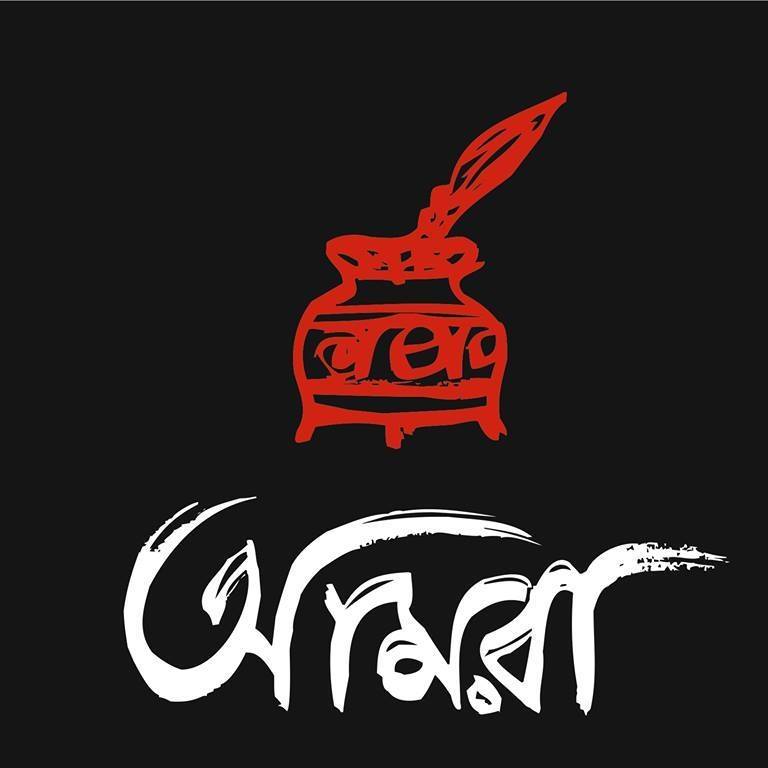
আমরা: এক সচেতন প্রয়াস
AAMRA is an amalgamation of multidisciplinary team of researchers and activists erstwhile worked as an assemblage of movement, research and activism. Popular abbreviation of AAMRA is, An Assemblage of Movement Research and Appraisal.-
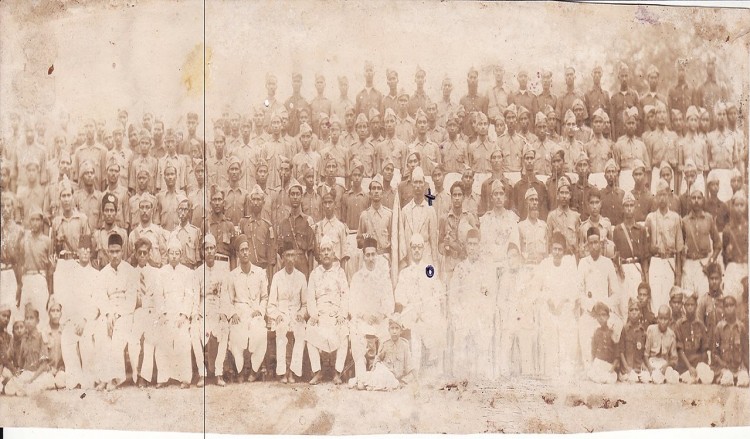
Muslims against Partition
'Muslims against Partition' is an important work for... -
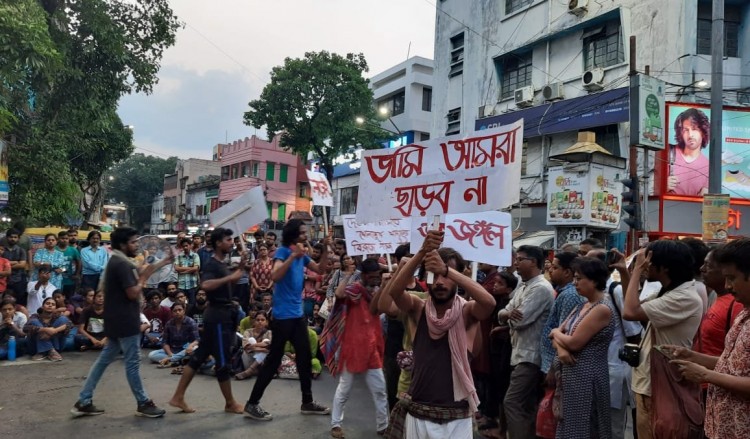
Rally to celebrate World Environment Day, Kolkata, 5 June, 2022
‘Environment Rights Movement’, a platform of different... -
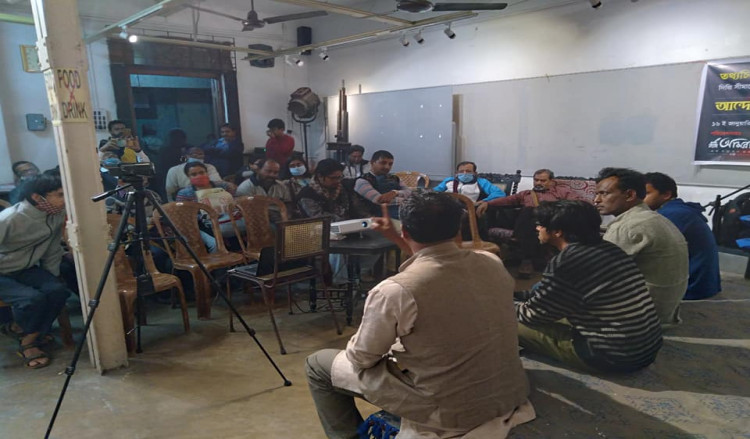
Farmer's Movement: Experience Sharing and Documentary Show, 16 January, 2021
AAMRA organised a program on contemporary farmer's movement... -
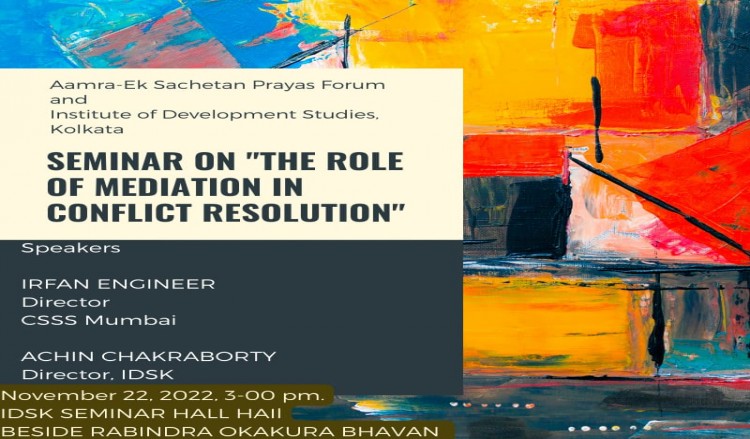
Seminar on Role of the Mediation in Conflict Resolution, IDSK Hall, Kolkata, 22 November, 2022
This seminar explores how a conflict area complicates...

